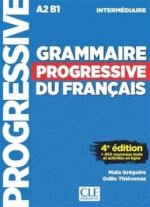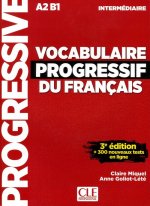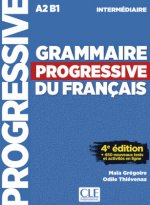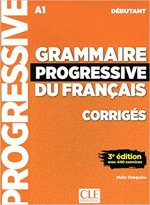
Kód: 34012345
La catégorie morale de péché structurel
Autor Mathias Nebel
" Il était impossible à une personne habitant l'Allemagne en 1938 d'échapper au nazisme. Son triomphe politique et sa prétention totalitaire le rendaient alors omniprésent. Chaque situation de la vie publique mettait l'individu – ... celý popis
- Jazyk:
 Francouzština
Francouzština - Vazba: Brožovaná
- Počet stran: 596
- Více informací o knize

1628 Kč
Dostupnost:
50 % šance Máme informaci, že by titul mohl být dostupný. Na základě vaší objednávky se ho pokusíme do 6 týdnů zajistit.
Máme informaci, že by titul mohl být dostupný. Na základě vaší objednávky se ho pokusíme do 6 týdnů zajistit.Prohledáme celý svět
Mohlo by se vám také líbit
-

Tarot de Marseille
492 Kč -

Coloriages Mystères Disney Portraits
528 Kč -

Disney Best of Les Grands classiques (Coloriages mystères)
527 Kč -

Le Petit Prince
146 Kč -

Grammaire progressive du francais - Nouvelle edition
502 Kč -

Changer l'eau des fleurs
269 Kč -

Animaux menacés
463 Kč -

Vocabulaire progressif du francais - Nouvelle edition
631 Kč -

ABC DELF Junior
355 Kč -

ABC DALF C1/C2
558 Kč -

ABC DELF Junior
341 Kč -

Nouvelle Génération B1 - Livre + Cahier + didierfle.app
565 Kč -

Edito B1 - 3ème édition - Livre + livre numérique
589 Kč -

Coloriages mystères Disney Chiots et chiens
527 Kč -

Grammaire progressive du français - Niveau intermédiaire. Buch + Audio-CD
745 Kč -

100% FLE - Vocabulaire essentiel du français B1- livre + didierfle.app
527 Kč -

Bescherelle La conjugaison pour tous
368 Kč -

GRAMMAIRE PROGRESSIVE FRANCAIS CORRIGES DEBUTANT A1
246 Kč -

Love Stories
527 Kč -

Le DELF 100% reussite
609 Kč -

Grands classiques Tome 10
525 Kč
Darujte tuto knihu ještě dnes
- Objednejte knihu a zvolte Zaslat jako dárek.
- Obratem obdržíte darovací poukaz na knihu, který můžete ihned předat obdarovanému.
- Knihu zašleme na adresu obdarovaného, o nic se nestaráte.
Informovat o naskladnění knihy
Zadejte do formuláře e-mailovou adresu a jakmile knihu naskladníme, zašleme vám o tom zprávu. Pohlídáme vše za vás.
Více informací o knize La catégorie morale de péché structurel
Nákupem získáte 163 bodů
 Anotace knihy
Anotace knihy
" Il était impossible à une personne habitant l'Allemagne en 1938 d'échapper au nazisme. Son triomphe politique et sa prétention totalitaire le rendaient alors omniprésent. Chaque situation de la vie publique mettait l'individu – sans possibilité d'échappatoire – en présence du régime politique. Chaque Allemand eut alors à prendre position ; chacun fut astreint à spécifier la nature du rapport qui le liait au nazisme et surtout à trancher entre l'acceptation ou le refus. Pour certains, l'adhésion était ancienne – celle-là même qui permit aux nazis d'accéder au gouvernement – mais pour une majorité d'Allemands, ce ne fut qu'une fois le National-Socialisme installé au pouvoir qu'ils se trouvèrent contraints à un choix : soit s'accommoder du nazisme, soit souffrir la répression ou l'exil. C'est la simplicité de ce choix qui est terrifiante. Pour sauvegarder son "âme immortelle", comme la nomme Haffner, fallait-il vraiment sacrifier le lieu de son enfance, la famille, les proches et les amis, une position sociale, un travail et tous ces biens qui font d'un lieu quelconque une maison et un pays ? Mais surtout, aujourd'hui, se peut-il qu'on doive encore sacrifier tout cela à des convictions politiques, morales ou religieuses ? Car en fin de compte que valent des convictions intangibles à l'encontre du caractère si concret de notre enracinement social ? Le fait qui retient notre attention durant tout ce livre est que ce choix a existé et qu'il se pose, ou plutôt s'impose toujours encore à un grand nombre de personnes. " (Mathias Nebel) -- 'It was impossible for anyone living in Germany in 1938 to escape from Nazism. At that period, its political triumph and totalitarian aims rendered it omnipresent. Every situation in public life brought the individual face to face with the political regime, with no avenue of escape. Every German was obliged to take sides; everyone was compelled to specify the exact nature of their relationship to Nazism and especially to decide they were for or against the party. Some had been members for a long time – those who had allowed the Nazis to reach government – but, for the majority of Germans, it was only when the National Socialists came to power that they found themselves confronted with a choice: either put up with Nazism, or suffer repression or exile. It is the simplicity of this choice that is so terrifying. In order to save one's 'immortal soul', as Haffner put it, is it really necessary to sacrifice the place of one's childhood, family, kin and friends, social status, employment and all those things that transform an ordinary place into a home or country? But more especially today, could we once again be asked to sacrifice all those things for our political, moral or religious convictions? For, when all is said and done, just how much do we value something as intangible as our convictions when confronted with the possible loss of something as concrete as our social roots? The thing which retains our attention most in this book is that the choice did exist, and that a large number of people are still being called upon – or rather compelled – to make it.' (Mathias Nebel)
 Parametry knihy
Parametry knihy
Zařazení knihy Knihy ve francouzštině
1628 Kč
- Plný název: La catégorie morale de péché structurel
- Autor: Mathias Nebel
- Jazyk:
 Francouzština
Francouzština - Vazba: Brožovaná
- Počet stran: 596
- EAN: 9782204080880
- ID: 34012345
- Hmotnost: 720 g
- Rozměry: 215 × 135 × 30 mm
Osobní odběr Praha, Brno a 12903 dalších
Copyright ©2008-24 nejlevnejsi-knihy.cz Všechna práva vyhrazenaSoukromíCookies


 Vrácení do měsíce
Vrácení do měsíce 571 999 099 (8-15.30h)
571 999 099 (8-15.30h)